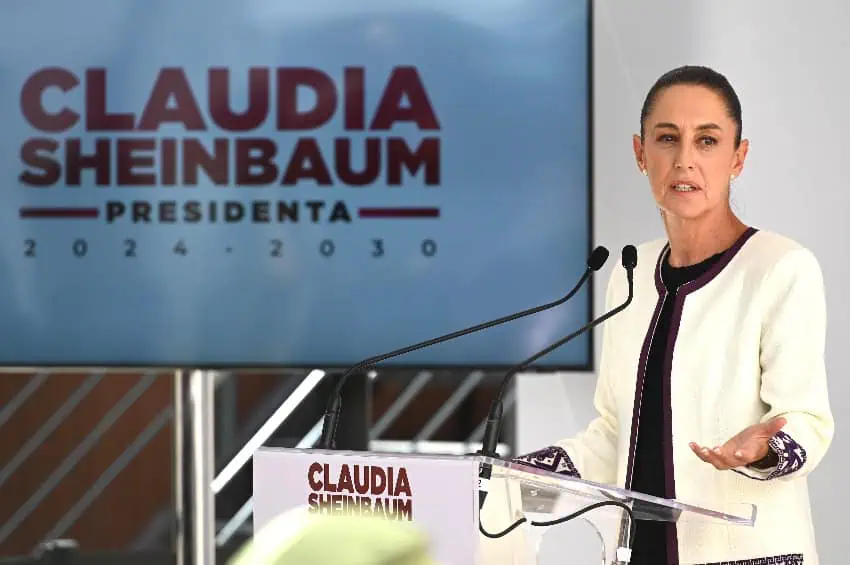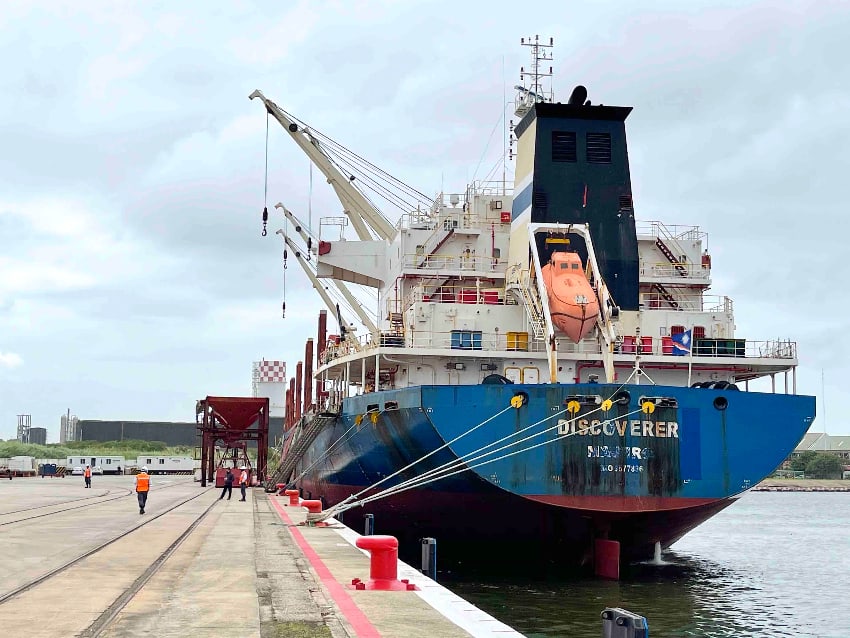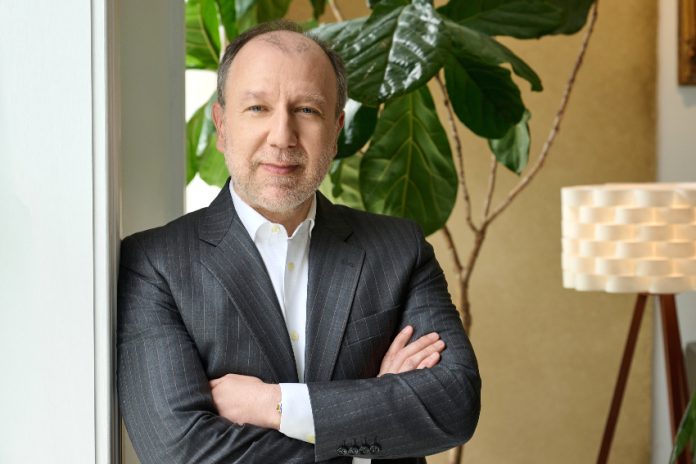Mexico received more than US $36 billion in foreign direct investment (FDI) last year, but an even more eye-catching figure was the $110.74 billion in investment announcements made by private companies over the course of 2023.
Optimism that Mexico — already the world’s 11th largest FDI recipient — is set to reap major economic rewards from the nearshoring trend, including a significant increase in FDI, can be found in government statements, in newspaper headlines, in remarks from leading business figures and in comments from President-elect Claudia Sheinbaum.
However, there are concerns that Mexico runs the risk of missing its nearshoring opportunity, or at least not taking full advantage of it, for a variety of reasons, including insecurity, government policy and lack of infrastructure.
To get another viewpoint on Mexico’s current FDI situation, and its future opportunities, Mexico News Daily CEO Travis Bembenek and I spoke to Jorge Guajardo, Mexico’s longest serving ambassador to China (2007-13) and a former consul general in Austin, Texas.
Jorge is now a partner at DGA Group in Washington, D.C., where he provides strategic guidance to companies on risk, cyber security, market disruptions, and barriers to market entry in China and Latin America.
MND put five FDI-related questions to the former ambassador, a Monterrey native who keeps a close eye on political, economic and social developments in Mexico.
Will the foreign companies that have recently made investment announcements for Mexico follow through with their plans?
Guajardo essentially provided two answers to this question: one for Chinese companies and another for firms from other foreign countries.
Companies from the United States and Europe, for example, usually conduct “due diligence” before they commit to a project and therefore tend to make “more serious” investment announcements, he said.
On the other hand, China, and Chinese companies, have “a long history of making investment announcements they don’t follow up on,” Guajardo said.
In that context, he told MND he sees slated Chinese investment in Mexico as “a big nothing story,” citing promised Road and Belt Initiative projects that haven’t come to fruition to support his view.

Take China’s investment announcements in Mexico with “a huge grain of salt, a Rock of Gibraltar-sized grain of salt,” Guajardo said.
“China announces things without giving it much thought, they seldom actually go ahead. In China there is a saying that once you sign a contract that’s where the negotiation begins. … I’m not saying it as a criticism, it’s just they have a different way of doing business,” he said.
Given that firms from other foreign countries typically conduct ample research before they commit to a project, and considering that they are often public companies with a responsibility to report to their shareholders, Guajardo is confident that they will go ahead with the projects they announced during Andrés Manuel López Obrador’s presidency.
If they were confident enough to commit themselves to projects during AMLO’s administration, they won’t change their mind during the presidency of Claudia Sheinbaum, he said.
Regarding the proposed reforms López Obrador sent to Congress earlier this year — which have generated considerable concern in markets in the wake of Mexico’s recent elections — Guajardo noted that Morena and its allies didn’t win a supermajority in the Senate and therefore there is no ironclad guarantee they will be able to approve the proposals.
Even though there is a better than even chance that they will be able to bring over the missing votes from other parties, he said, this will be done on a case by case basis, without a blank check for Morena to proceed without having to build coalitions.
Guajardo added one caveat to his confidence about most foreign companies following through on their investment plans, noting that he expects more caution from auto sector companies, including Tesla, because of Chinese overcapacity in that sector and the possibility that those vehicles will be dumped all over the world.
Is it concerning that ‘new investment’ currently constitutes only a small percentage of overall FDI?
New investment accounted for just 3% of FDI in the first quarter of 2024, while the figure last year was 13%. The lion’s share of FDI in Mexico in those periods was “reinvestment of profits” by foreign companies that already have a presence here.
Some analysts have claimed that the low levels of new FDI are a cause for concern and evidence that Mexico hasn’t yet really benefited from nearshoring.

For his part, Guajardo said he was unconcerned about the low current levels of FDI.
Whether foreign companies’ outlay in Mexico is new investment or reinvestment of profits “makes no difference to me,” he said.
The expansion plans of companies such as automotive manufacturer Polaris and toy maker Lego in Nuevo León don’t represent “new investment” as classified by the Economy Ministry, but “the way they’re growing” is new, Guajardo said, noting that they are “building more capacity” and “hiring more people.”
If most companies that have recently made new investment announcements for Mexico do go ahead with their plans, as Guajardo believes they will, the “new investment” proportion of FDI will inevitably rise in the coming years.
What are the most attractive sectors for foreign investment in Mexico?
Mexico’s under-resourced energy sector is “the biggest immediate area of opportunity for foreign direct investment,” Guajardo said.
“… If I’m talking to foreign investors I would say the big area to keep an eye on is the energy sector. There’s a huge opportunity for generation and transmission,” he said.

Guajardo said that the makeup of Sheinbaum’s team — she is due to name her cabinet this week — will be indicative of whether she wants to maintain AMLO’s “energy sovereignty” posture, or whether she is more pragmatic and seeks to address deficits in energy generation, especially clean energy generation, by allowing, and courting, greater private sector investment.
Beyond the energy sector, he said that the logistics industry represents another area of investment opportunity given that the desire to shorten supply chains is a major motivation for relocation to Mexico by foreign companies.
“That would be an area I’d be keeping an eye on,” Guajardo said, noting that there is already significant foreign investment in transport and warehousing projects in Mexico.
Will the depreciation of the peso spur foreign investment?
“My guess is most every exporting company in Mexico wanted a depreciation of the peso,” Guajardo said, referring to the recent drop in the value of the currency against the US dollar.
He said that a weaker peso — the currency has depreciated 8% against the greenback since the elections — puts winds in the sails of industry in Mexico because their exports are “more attractive.”
Guajardo said he was “quite bullish” on the opportunities that a weaker peso creates for Mexico, although he expressed consternation at the cause of the currency’s recent fall — i.e. Morena’s comprehensive election win and concerns about the party’s proposed constitutional changes.
Mexico needs a weaker peso “to prop up industry,” he added.
“Countries don’t become big by consuming more, they become big by producing more,” Guajardo said.
What do you see as the biggest barriers to even greater FDI in Mexico?
Guajardo said that government policy or posture, water scarcity, insecurity and inadequate infrastructure are among the potential barriers to increasing foreign investment in Mexico.

He said he believes that the government’s posture — at least with regard to the energy sector — will improve during the presidency of Sheinbaum, who will take office Oct. 1.
Respect for the rule of law, “particularly in the energy sector,” is needed to create investor confidence, Guajardo said. There need to be “clear signs” that contracts will be respected “in the long term,” he added.
Meanwhile, water supply pressures as more and more companies relocate to Mexico is going to be a “huge issue,” Guajardo predicted.
“Communities will stand up to investment or to big business” over water, he said, adding that water availability, electric capacity, and a tight labor market will be new areas of due diligence for companies seeking to set up manufacturing operations in Mexico
Insecurity, “particular as it pertains to transportation,” is another potential barrier to FDI, Guajardo said, referring to things such as highway and train robberies.
Finally, the Isthmus of Tehuantepec is one example of a region of Mexico where a lack of infrastructure could hold foreign investment back, he said.

The federal government has modernized the rail line between the Pacific and Gulf coasts across the isthmus, and hopes to lure companies to new industrial parks in the region with a range of tax incentives.
However, Guajardo said that more infrastructure is needed to convince companies to move to Mexico’s disadvantaged south.
“If you’re going to build a new plant, you want hospitals, you want airports, you want schools, you want roads,” he said.
“I think it’s still in its infancy,” he added, referring to the Interoceanic Corridor of the Isthmus of Tehuantepec project.
“It’s a great idea. Who’s not in favor of giving more jobs to people in need? But it’s more complicated than that,” Guajardo said.
By Mexico News Daily chief staff writer Peter Davies (peter.davies@mexiconewsdaily.com)
